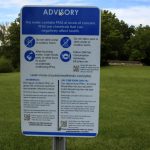State Leaves National School Board Association
Half of nation’s school board associations have left group, as schools become more politicized.
 The Wisconsin Association of School Boards (WASB) will no longer belong to the National School Board Association (NSBA) beginning in July. Over half the state school board associations across the county have withdrawn. Just a year ago, NSBA represented every state school board association. NSBA may not survive. A unified voice for school boards in Washington is fragmenting.
The Wisconsin Association of School Boards (WASB) will no longer belong to the National School Board Association (NSBA) beginning in July. Over half the state school board associations across the county have withdrawn. Just a year ago, NSBA represented every state school board association. NSBA may not survive. A unified voice for school boards in Washington is fragmenting.
On September 29 of this school year, NSBA sent a letter to the Biden administration requesting federal assistance in combating actions “equivalent to forms of domestic terrorism and hate crimes” against school board members. School board members had been threatened over pandemic restrictions and cultural issues such as opposing racism and anti-LGBTQ messages. Even though the NSBA letter never directly stated that parents were at fault, state associations across the country interpreted it that way.
The dispute with NSBA runs deeper than a single letter on domestic terrorism. Conservative state school board associations see a liberal NSBA supporting involvement by the federal government. They believe that money appropriations come with too many liberal strings attached.
The Nebraska school board association cut ties this past weekend along with Wisconsin. Nebraska specifically raised issues “on masking, sex education and critical race theory.”
Wisconsin points to financial mismanagement by NSBA leadership. “The NSBA’s burdensome post-employment liabilities serve as one example of this concern and evidence of systemic issues over which the WASB has had concerns for several years,” wrote WASB in its press release. NSBA was forced to sell the organization headquarters and rent back space due to cash flow problems.
Wisconsin suspended involvement with NSBA in October but could not leave immediately because membership with NSBA was in WASB’s bylaw. That requirement was removed in January by the delegate assembly of all Wisconsin school boards. However, WASB had already paid its dues for the school year ending at the beginning of July. The action the WASB board took on June 10 was to officially end that relationship.
Other states found themselves in the same situation. Texas and California ended their relationship with NSBA just in the last few weeks.
NSBA responded by giving states a “grace period” to pay their dues in the hopes of luring some members back. It conducted an independent review of the September letter sent to the Biden administration. It places most of the blame on NSBA interim CEO and Executive Director Chip Slaven. He is no longer with the association and feels he is being treated as the scapegoat.
Michigan and Indiana are likely to hold off leaving NSBA because both states had a new member appointed to the NSBA Board of Directors. Such appointments are often seen as stepping stones to higher positions in the organization including the presidency.
Wisconsin could now choose to join the upstart Consortium of State School Boards Association (COSSBA).
Certain phrases keep popping up: “voluntary, non-partisan,” “locally accountable,” “shared responsibility” in COSSBA documents. It appears that COSSBA wants to steer a path away from Washington with local and state organizations taking control.
Some state associations may wait to join depending on how the new organization is structured. The founding members come from Southern and Midwestern states, none from the Northeast or the West Coast. The organization is likely to be somewhat more politically conservative than NSBA.
COSSBA is establishing an Urban Boards Alliance with mostly Black advisors; however, all except one advisor from Ohio come from Southern states.
On the other hand, members of NSBA’s Council of Urban Boards of Education (CUBE) come from all areas of the country. CUBE members may find that their own state organizations have left NSBA. That may leave CUBE, the Council of School Attorneys and other NSBA affiliated organizations to decide to spin off on their own, not attached to NSBA.
Big cities are likely to look to the Council of Great City Schools (CGCS) for support and lobbying efforts. Milwaukee is the only Wisconsin city that meets the criteria of CGCS. A district must be in a community of at least 250,000 with 35,000 students. Midsize cities like Madison and Green Bay may feel they have no home to look to on the national level.
In dropping the requirement that WASB maintain its membership in NSBA, WASB’s new resolution still requires that it “maintain a national presence and/or membership in a national association(s).” WASB can and does have a relationship with Wisconsin members of the House and Senate.
WASB could band together with other like-minded state organizations on an ad hoc basis to advocate for federal legislation and administrative involvement. Even if Wisconsin is able to forge alliances with other state organizations, other state associations may take opposing viewpoints. National organizations like NSBA, COSSBA and CGCS may be at odds with each other. No single school board organization will be able to say that it speaks for public education to the degree NASB has done in the past.
The National School Board Association is falling apart was originally published by Wisconsin Examiner





















